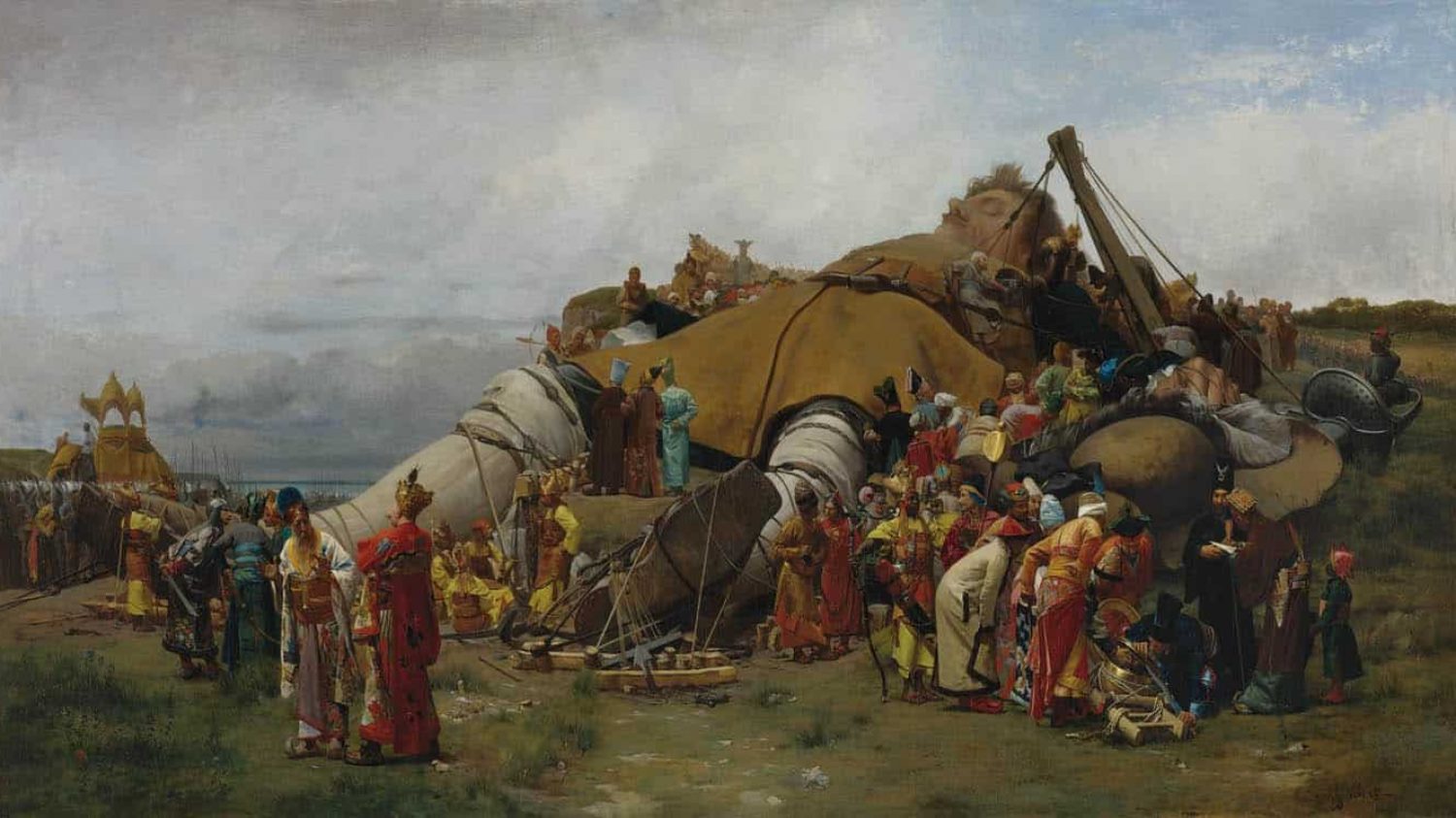Gulliver’s Travels has given the English language several notable words, including ‘yahoo’, an uneducated ruffian, and ‘lilliputian’, meaning small, after the miniature humans. [1]
Gulliver’s Travels, or Travels into Several Remote Nations of the World, in Four Parts, by Lemuel Gulliver, first a surgeon, and then a captain of several ships, was published anonymously on 28 October 1726. It was an immediate success with 10,000 copies sold in the first three weeks, and a total of three printings that year. French, German, and Dutch translations appeared in 1727, and pirated copies were printed in Ireland. Jonathan Swift probably started writing it in 1720.
Gulliver’s Travels is Swift’s best-known full-length work and a classic of English literature. It opens with Gulliver’s shipwreck on the island of Lilliput, whose inhabitants are just six inches high (the word “Lilliputian” quickly came into common usage). This most famous and familiar part of the book is a satirical romp, and much of the material reflects Swift’s political experiences of the preceding decade. From a race of miniature folk to some surprisingly gentle giants and wise horses, Gulliver sees society from many different perspectives. Swift claimed that he wrote it “to vex the world rather than divert it“.
Written with disarming simplicity and with careful attention to detail, Gulliver’s Travels has earned its place by being equally entertaining to children and adults. For children, it remains an enchanting fantasy; for adults, it is a witty parody of political life in Swift’s time and a scathing send-up of manners and morals in 18th-century England.
